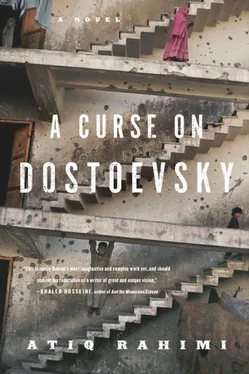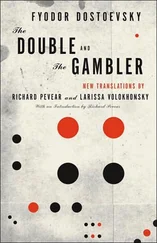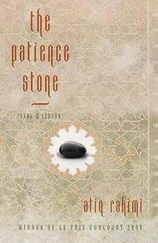Razmodin springs to his feet, on fire: “We’ll go and get them…” But Rassoul’s despairing gaze crushes his enthusiasm and brings him back to his senses: “No, things are becoming very dangerous, here. We’ll all go to Tajikistan.” Rassoul shakes his head. “You’re right, that’s under their control, too”—he is weary now—“so where? Find a solution, damn it!” Do what you want, but leave Rassoul in peace. In peace!
Torn between his rage at Rassoul’s incomprehensible silence and his anxiety at the threat posed by Rostam, Razmodin stands dejected for a moment. Then suddenly he leaves, slamming the door. His furious steps can be heard charging down the stairs, hammering through the courtyard, and at last disappearing into the dust of nightfall.
Exhausted, Rassoul shuts his eyes, but cannot sleep.
Night falls, dark.
It invades the room.
And when the chorus of calls to prayer seizes the city from its sleep, Rassoul painfully opens his eyes. His head is spinning. He sits up and leans against the wall, his legs bent to his chest.
He is trembling. Trembling with rage, fear, cowardice… with everything.
Everything joins together in his chest.
Swells up and bursts out of his throat, silently.
He weeps.
HE SLEEPS.
Suddenly, he is jolted awake by the terrifying sound of an explosion. Soaked in sweat, he scrambles to a sitting position and looks wildly out of the window. It is still night, still dark. The black smoke forbids the moon from slipping inside, into peoples’ dreams.
Rassoul lights the candle that Rona has left within his reach. He drags himself to the clay jug. Not a drop of water.
Returning to bed, he suddenly sees the bundle of notes that Rostam left in Razmodin’s care. A fly has landed on it. The bundle is just like the one Nana Alia grasped so firmly in her stiff, fleshy hand. Or at least it reminds him of that. All cash looks the same.
Pick it up!
After a long hesitation he snatches it, as if hoping to capture the fly as well. But it escapes back to its friends on the white napkin draped over the raw cheese and raisins.
He stares at the money for a long time, before flinging it into a corner of the room. Out of fear, or revulsion.
He smokes.
He thinks.
He thinks that maybe this cash is not as dirty as the stuff that belonged to Nana Alia after all. Or as dangerous. So why such disgust? “Egotism!” Razmodin would say. “You really are eaten up by egotism, Rassoul. An egotism based on nothing, an absurd egotism.”
Yes, I admit to this baseless egotism. May the world know: I prefer egotism to pride. To be proud is to be proud of something , and therefore to depend on that thing. Whereas egotism is something deep, internal, personal, independent, with no external reference point. Pride relates to honor; egotism to dignity.
Words again, pretty words. Despite everything you’ve been through and are going through, you still can’t come to terms with the fact that you need this money. That’s nearly fifty thousand afghanis—enough to save your mother, your sister, and your fiancée. Letting your family be destroyed: Now wouldn’t that be an affront to this egotism, this dignity?
Rassoul, exasperated, takes a long drag on his cigarette, and on the exhale blows out the candle. He lies down and waits in the darkness. Waits for the dawn to rise so he can visit his cousin, and give him back the money.
No, it is not with this money that I will save my family.
If you say so. But with what, then?
He tosses and turns; with his nail he scrapes a chunk of peeling paint from the wall. He did this as a boy, licking the remains of the foul-smelling paint from his fingertips; licking it in order to make himself throw up, and to stop himself from sleeping.
He does not throw up.
He falls asleep.
By dawn he is at the Hotel Metropole. The neighborhood has been cordoned off and is protected by two tanks, a few armed jeeps, and several UN vehicles. Rassoul strides purposefully up to the hotel. He is stopped by two armed men. He moves his lips to form the name Razmodin.
“What?”
Suddenly, there is a great commotion. Men pass by carrying the body of a “martyr” and yelling: “Allah-o Akbar! Avenge our shahids !” The two guards abandon Rassoul to join the procession. He walks into the hotel. The lobby is packed with armed men and journalists, all waiting for something to happen. What? No one seems to know. Everyone is on edge. Rassoul heads for the stairs to Razmodin’s office, but is forced to melt into a corner when he sees Commandant Rostam appear at the far end of the corridor flanked by the two men Rassoul met in Parwaiz’s office—the ones who swore lifelong hatred for the commandant from Mazar. They look in good spirits despite the tense atmosphere in the hotel, and seem to be on the same side…
Rassoul slips into Razmodin’s office. He is not there. He must have gone to Mazar, to fetch Donia. Now there’s a real man. Doing what needs to be done. Good.
Yes, good, because it lets you off the hook.
I’ve had enough. Think of me as a coward. A good-for-nothing. I am just a failed son, failed friend, failed enemy, failed student, failed fiancé, failed murderer… and that is all I am. Leave me to inebriate myself, to take a trip into the poetic abyss of hemp.
And he knocks on the door of the saqi-khana . “Who’s there?” asks Hakim, the owner, as he peers through the gaps in the door. “Rassoul?” Yes. “But which one? The saint or the hash-head?” calls Kaka Sarwar. Hakim opens the door laughing, and pulls Rassoul inside. As always, the curls of smoke make everything look blurred and hazy, as in a dream.
Hakim shuts the door and shows Rassoul to a place in the circle of smokers, next to a young man in a trancelike state. “Move up, Jalal, make some space.”
Another young man sitting next to Jalal moves instead, saying: “Don’t spoil his high. Jalal is as high as a kite. If he moves, he’ll come down. Sit here, my friend, next to Mustapha. That’s a good spot for you.” Once Rassoul has sat down, Mustapha hands him the chillum. “Here, for you, the new arrival.” Rassoul first breathes out the sulphurous air of the city, then draws in as much hashish as his lungs will hold.
“Our friend Jalal was born on opium. He was big, apparently. It was only the opium that allowed his mother to get him out. So he was born high on opium… the lucky thing!” As he breathes out the smoke Rassoul glances at Jalal, who looks up and murmurs: “The war hasn’t started yet, has it?” Mustapha asks in a whisper: “What are they saying outside—another coup d’état?” Rassoul shrugs his shoulders to indicate that he has no idea, and takes another lungful.
“He doesn’t know either, Kaka Sarwar!” says Mustapha, pointing at Rassoul. “So he can’t be Rassoul the Sacred Messenger.”
Kaka Sarwar shakes his head. “Not knowing anything about anything is the essence of wisdom. This young man has understood life. He knows everything, but knows nothing about it.”
Another head looms out of the smoke: “It’s been years now that we’ve known nothing about anything, and the world has known nothing about us. Is that wisdom, then?”
“It’s not the same thing.”
“Then I no longer understand what you’re saying, Kaka Sarwar.”
“Listen, when you say that you don’t know anything, that’s the beginning of wisdom. And when you say that you don’t know anything about anything, then you have attained absolute wisdom. Do you know anything about this war?”
“No.”
“Very good. You know that you don’t know. That’s a great start! And once you understand the why of this war, you will wish that you didn’t know. Come on, pass me the chillum!” He smokes, then continues: “A holy man among holy men, by the name of Attar, used to say that in the penultimate valley of wisdom—which he called Wadi Hayrat—the traveler would be stupefied, and become lost. He would forget everything, even himself.” He closes his eyes and recites a poem: “If he is asked: ‘Are you, or are you not? Have you or have you not the feeling of existence? Are you in the middle or on the border? Are you mortal or immortal?’ he will reply with certainty: ‘I know nothing, I understand nothing, I am unaware of myself. I am in love, but with whom I do not know. My heart is at the same time both full and empty of love.’”
Читать дальше












